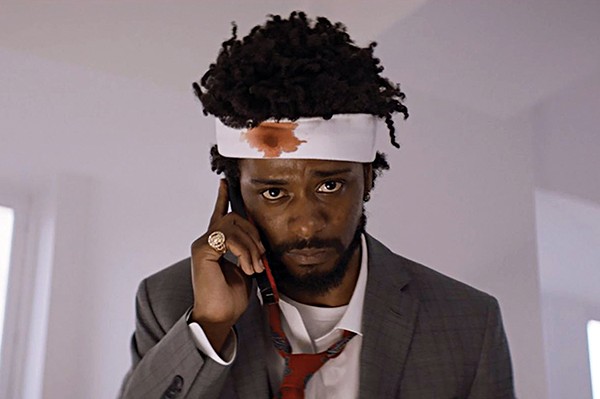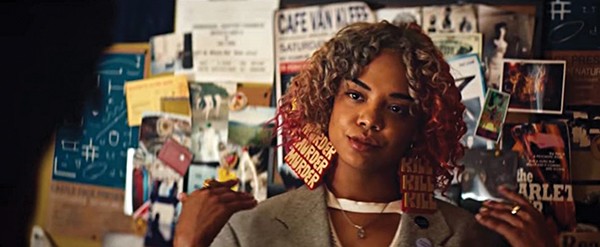Dada was a short-lived art movement, but it has proven extremely influential. Born in 1915, in the darkest days of World War I, Dada was a response to a world gone mad. Artists like Max Ernst and Marcel Duchamp saw government officials spout murderous nonsense during the war with the same straight face they used to announce mundane facts in peacetime. They were the first to decide it was time for art to stop making sense. The age of reason had led to the birth of monsters, so it was time to explore unreason.
Ever since then, even after Dada had curdled into less explicitly political surrealism, times of great uncertainty or change have been accompanied by resurgences of weirdness in art, like the Fluxus movement of the 1960s. In the 1970s, Monty Python brought high dadaism into mainstream television comedy in an England reeling from its post-imperialist loss of power and influence. A few years later, as things in London got worse, punk took hold of the kids with a gleeful nihilism inherited from dada. Former Python Terry Gilliam struggled mightily to create his surrealist, satirical masterpiece Brazil in 1985. Ten years later, indie film OG Steven Soderbergh almost ended his career with his brilliant detour into dada, Schizopolis. Audiences secure in the post-Cold War glow of the 1990s were less open to world-breaking strangeness.

Lakeith Stanfield
Sorry to Bother You seems like another dada eruption in response to chaotic and senseless times. It is the brainchild of writer/director Boots Riley, who until now has been better known as the founder of Bay area hip-hop act The Coup. The name of The Coup’s second album, 1994’s Genocide and Juice, sums up how different their outlook was from the rest of the West Coast. Instead of rapping about blunts and gangsters, Riley called out racism and extended his critique to American capitalism. He’d read King and Malcom X, but he also read Marx. If Jordan Peele’s Get Out was a horror film for the Black Lives Matter age, Sorry to Bother You is the socialist satire you’ve been waiting for.
When we first meet Cassius “Cash” Green (Lakeith Stanfield), he’s so desperate for a job, he’s willing to lie to a recruiter at RegalView, a sleazy telemarking company. His lies are immediately exposed, but his prospective employer doesn’t care, since he’s going to be lying for a living, anyway.
Like Mookie in Do the Right Thing, Cash really only wants to hang out with his best girl, Detroit (Tessa Thompson). She’s a talented artist with a penchant for striking earrings that send messages like “KILL KILL KILL,” but she’s been reduced to twirling signs for a living. Like everyone in the film, Cash and Detroit are stuck in meaningless, alienating jobs with no hope of doing anything except surviving through the next paycheck. It’s no wonder that the bold new startup WorryFree, which offers to take care of every material need for people who sign up for lifetime labor contracts, is having such success.

Tessa Thompson
WorryFree, led by superstar entrepreneur Steve Lift (Armie Hammer at his most diabolically charming), is Riley’s most cunning ploy. Its employees live stacked in dorms, eating company food and wearing company uniforms, essentially slaves in all but name. It’s a recognition that, for all the hype in the business press, so many of the “innovations” from Silicon Valley entrepreneurs are merely ways to use computers to oppress labor. Riley shows us the rock bottom of that slippery slope while playing it for laughs.
On the advice of an older co-worker played by the ageless Danny Glover, Cash gets results by using his “white voice” (supplied by David Cross) to sell useless crap to people on the other end of the phone. He’s so good at it, he’s offered a promotion to “Power Caller.” But he has to choose between a serious increase in status and crossing the picket lines set up by his co-worker Squeeze (Steven Yeun), a union organizer.
Sorry to Bother You doesn’t have the thematic unity of Get Out, but it makes up for it with sheer audacity. Riley stuffs his first movie with ideas and jokes, most of which work. He is infatuated with Gilliam (a background paperwork attack echoes Sam Lowry’s nightmare in Brazil), and also takes bits from aughts surrealism like Being John Malkovitch and Be Kind Rewind. It’s probably impossible to make a film that captures 2018’s insane zeitgeist, but Boots Riley has come uncomfortably close.